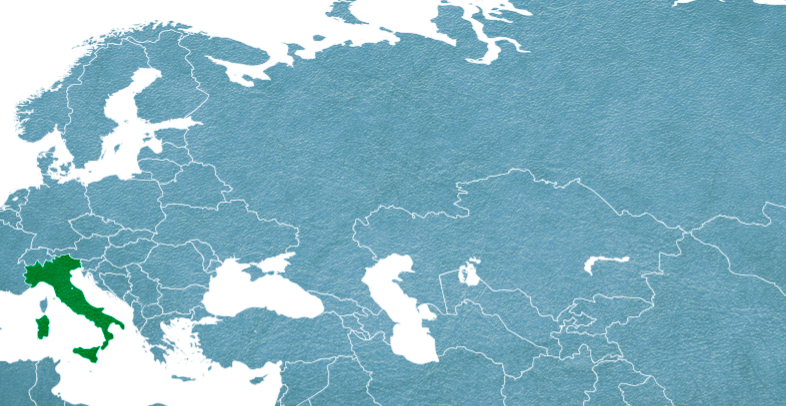By Yiğit Saner, reporting from Rome, Italy
One of the main themes of the G20 summit revolved around the question of how China-Italy relations would unfold following Italy’s decision to withdraw from the “Silk Road” cooperation (Belt and Road Initiative). The Initiative envisaged numerous infrastructure and commercial investments to facilitate trade with Beijing. According to Italian sources, the meeting with Prime Minister Li Keqiang went positively.
In a statement released by the Italian Prime Minister’s Office after the meeting between the two leaders, it was stated, “This initial contact between the Prime Ministers of both countries has demonstrated the shared intention to strengthen and deepen the dialogue between Rome and Beijing on mutual and international issues.”
Giorgia Meloni-Li Chiang meeting
There is now little doubt that Italy will withdraw from the Silk Road Initiative. Although parliamentary approval will be required by December 2023 to prevent automatic renewal, the decision appears to have already been made.
Rome is concerned about possible damage to bilateral relations. Italy is keen to ensure that this step does not have a negative impact on relations, which began in 2004 with the establishment of a strategic partnership between the two countries and gained momentum with Italy’s participation in the Belt and Road Initiative. For this reason, from Italy’s perspective the meeting between Giorgia Meloni and Li Keqiang during the G20 summit holds significant importance.
Prime Minister Meloni expressed her hope for the continuation of the growing bilateral relations despite Italy’s withdrawal from the Belt and Road Initiative during a press conference following her meeting with her Chinese counterpart: “I am very pleased with the atmosphere of this meeting. We talked about the Silk Road, but it’s not just about that. We have a strategic partnership with China. We discussed the Belt and Road Initiative, but this is not the only factor in rebuilding our relationship. The relations China has established with other European countries, often achieving more advantageous results than us, even though they are not part of the Silk Road in recent years, also demonstrate this. There is no certain date yet, but I hope to go to China as soon as possible. I think it would be more rational to visit China when we have more information about the future of our cooperation. […] Rationality always prevails. We were the only country in Europe that was part of the Silk Road, but others had often better bilateral relations in terms of trade and investments.”
US pressure on Italy’s choice
Beijing is particularly concerned that Italy’s choice may have been shaped by US pressure. Italy’s participation in the Belt and Road Initiative had not been welcomed by its Western partners, especially the US. And as relations between Washington and Beijing deteriorated, discontent and pressure on Italy increased.
Italian Foreign Minister Antonio Tajani, during his visit to Beijing on October 3, stated that they wished to withdraw because they had not achieved the economic results they had hoped for from the Silk Road. He pointed out that in 2022, France and Germany’s exports to China reached 23 billion and 107 billion respectively, while Italy’s remained at 16.5 billion. Cui Hongjian, director of the Department of European Studies at the China Institute of International Studies, told the Global Times, “To some extent, the Meloni administration now wants to use its so-called withdrawal from the BRI pact as evidence that it has returned to mainstream Western politics. Clearly, there’s significant political influence and pressure from the US and other Western countries.” Hongjian also addressed the trade deficit issue mentioned by Tajani: “To tackle the trade deficit, we must respect market rules. How much advantage do Italian products have in the Chinese market? This is not a problem of the Chinese government nor BRI cooperation, and they understand that.”
A strategy to avoid disrupting bilateral relations
During the G20 bilateral meetings, Chinese Prim Minister Li Keqiang not only emphasized the advantages that the Silk Road had brought to Italy but also underlined the importance of a healthy and stable relationship between China and Italy, stating that it is in line with the “common interests of both countries and is necessary for their growth”. He reiterated Beijing’s desire for Italy to provide a “fair, equal, and non-discriminatory business environment to enable Chinese companies to invest and thrive in Italy”, and he mentioned that they would continue to increase market access opportunities to facilitate the entry of quality Italian products into the Chinese market. Parallel to these positive statements from Li Keqiang, some Chinese experts suggested that the impact of Italy’s withdrawal on China-Italy relations would largely depend on how the discussions between the two sides progress. They underlined the withdrawal should not fundamentally harm bilateral relations.
The Italian government is planning a “soft withdrawal strategy” away from controversy and without disrupting bilateral relations. They show great respect to China’s leadership and President Xi Jinping as they approach the tenth anniversary of the strategic initiative in October 2023. They aim to maintain bilateral relations without causing disruption or controversies.
Another confirmed event is Italian President Sergio Mattarella’s visit to Beijing in 2024 to celebrate the twentieth anniversary of the strategic partnership between the two countries. However, in 2024, there is also another event of significance for both countries: the celebrations in January commemorating the 700th anniversary of Marco Polo’s death. It remains unclear whether Prime Minister Meloni will be in Beijing for the tenth anniversary of the Belt and Road Initiative.
In summary, Italy’s prescription for its relationship with China is clear: on one hand, withdrawing from the Silk Road and on the other, maintaining high-level relations with “the Dragon” and and find new fields of collaboration.
The initial signs from both Chinese and Italian media suggest that the existing relations will not suffer significant harm thanks to the constructive approach of both sides.

















Leave a Reply